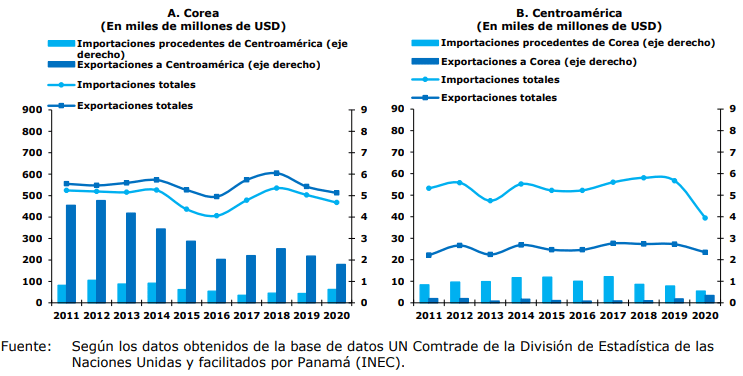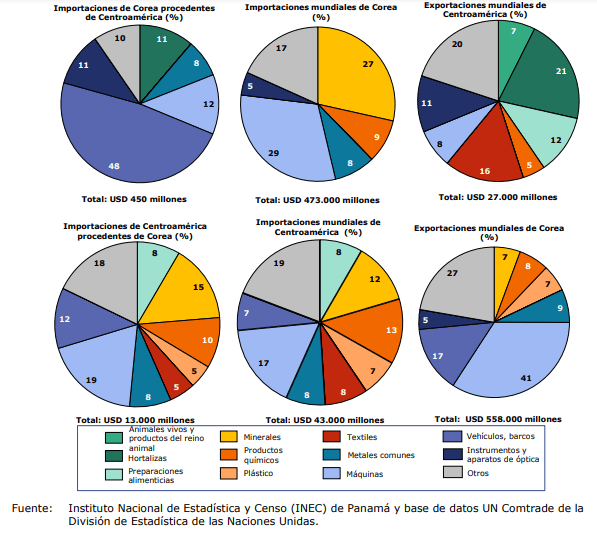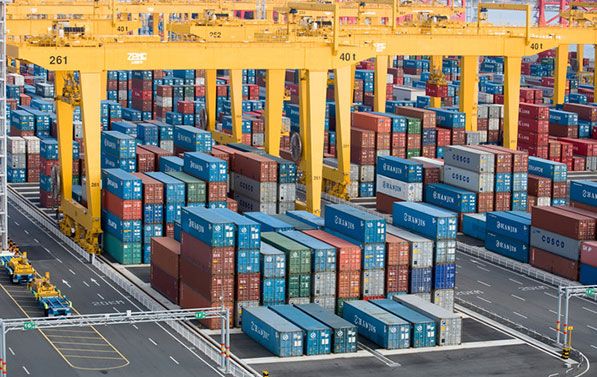The World Trade Organization (WTO) published a balance sheet on trade between South Korea and Central American countries.
The analysis shows the trends in merchandise trade between the Parties and with the world between 2011 and 2020.
Thus, during that period, South Korea’s overall world trade balance recorded a constant trade surplus.
South Korea’s trade, both globally and bilaterally, has been declining since 2019, with the exception of bilateral imports in 2020 despite the Covid-19 pandemic.
Meanwhile, Central America’s figures reveal a downward trend from 2018 or 2019; however, exports to Korea have increased since 2016.
Corea-Centroamérica (Costa Rica, El Salvador, Honduras, Nicaragua, Panamá): Comercio bilateral y mundial de mercancías, 2011-2020
South Korea and Central America
The WTO breaks down, based on Harmonized System (HS) Sections, the product-by-product structure of trade between South Korea and Central American countries, as well as of world trade of both Parties, for the period 2016-2018.
Of South Korea’s top three export products globally (accounting for 67% of its exports), two -machines and vehicles– were also among Central America’s top three import products from South Korea (accounting for 31% of bilateral imports).
Nearly half of Korea’s imports from Central American countries are Chapter 89 vessels; globally, these exports are, however, insignificant for Central American Parties as a whole.
Machinery and vegetables, which are of great export interest to Central American countries on a global scale, complete Korea’s top three import products from these countries.
Corea-Centroamérica: Composición por productos del comercio de mercancías, por Secciones del SA, promedio anual (2016-2018).
In 2020, Korea was the 8th largest exporter and importer of commercial services in the world (excluding intra-EU trade) and Central America, collectively, was the 22nd largest exporter and 34th largest importer.
In 2020, Korea’s world exports totaled $89.4 billion and its world imports totaled $104.9 billion.
During that period, Korea was a net importer in the global services market.
Conversely, Central America was at all times a net exporter of services; in 2020, its exports were worth $20.2 billion and its imports were worth $10.3 billion.

